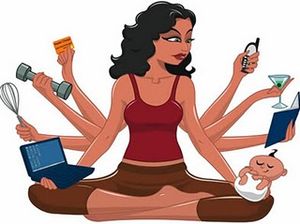Relating to last week’s lecture by Professor Mears on gender inequality and Hochschild’s readings, are two articles discussing the claim made by the Esquire‘s editor, that “women are there to be beautiful objects”. Some extracts:
“The women we feature in the magazine are ornamental,” he said, speaking at the Advertising Week Europe conference in London on Tuesday. “I could lie to you if you want and say we are interested in their brains as well. We are not. They are objectified.”
Seeing someone admit outright that his magazine deliberately objectifies female models is refreshing.
Sadly, however, having admitted to perpetuating sexism, Bilmes then tried to rationalize it with two of the most illogical sexist excuses in circulation: That’s just how men are and women do it, too! He trotted out the latter when he accused women’s magazines of also objectifying women, as if the practice becomes less, not more, objectionable for being ubiquituous.
For the full articles, visit slate.me/14eHHuw and gaw.kr/ZdcjZ0.
This directly relates to and integrates themes addressed in both CC202 and CC204. In last week’s CC204 lecture, Professor Mears highlighted some important changes in gender inequality in our society. Here is a sample:
- Women’s labor force participation rate peaked at 60% in 1999, following several decades in which women were increasingly entering the labor market.
- The share of mothers who are breadwinners or co-breadwinners has risen from 27.7% in 1967 to 63.3% in 2008.
- Men have increased their participation in housework from 15% to 30% since 1965.
- The mentality in the fashion world is strongly affected by gender. If you are a male model, “Just walk like a man, just walk like yourself. For guys it’s very different than girls. Girls have to learn to walk. Guys just walk with confidence,” says male model Parker, 24 , NYC.
- For men looking for prospective wives, traits like mutual attraction, education, intelligence and good looks have risen in importance between 1939 and 2008, while traits like dependable character, neatness, housekeeping and chastity have declined in importance during the same period.
The Core encourages students to dig further into this broad and controversial topic- it certainly deserves our attention.


One Comment
Caroline posted on March 25, 2013 at 9:42 am
These articles really got me thinking. Even though it is hard for people to accept, Bilmes made the right move in stating the true purpose of Esquire’s models. Bold statements like these get people thinking and can move society forward. I’m interested to hear more on how CC204 adds to this conversation.